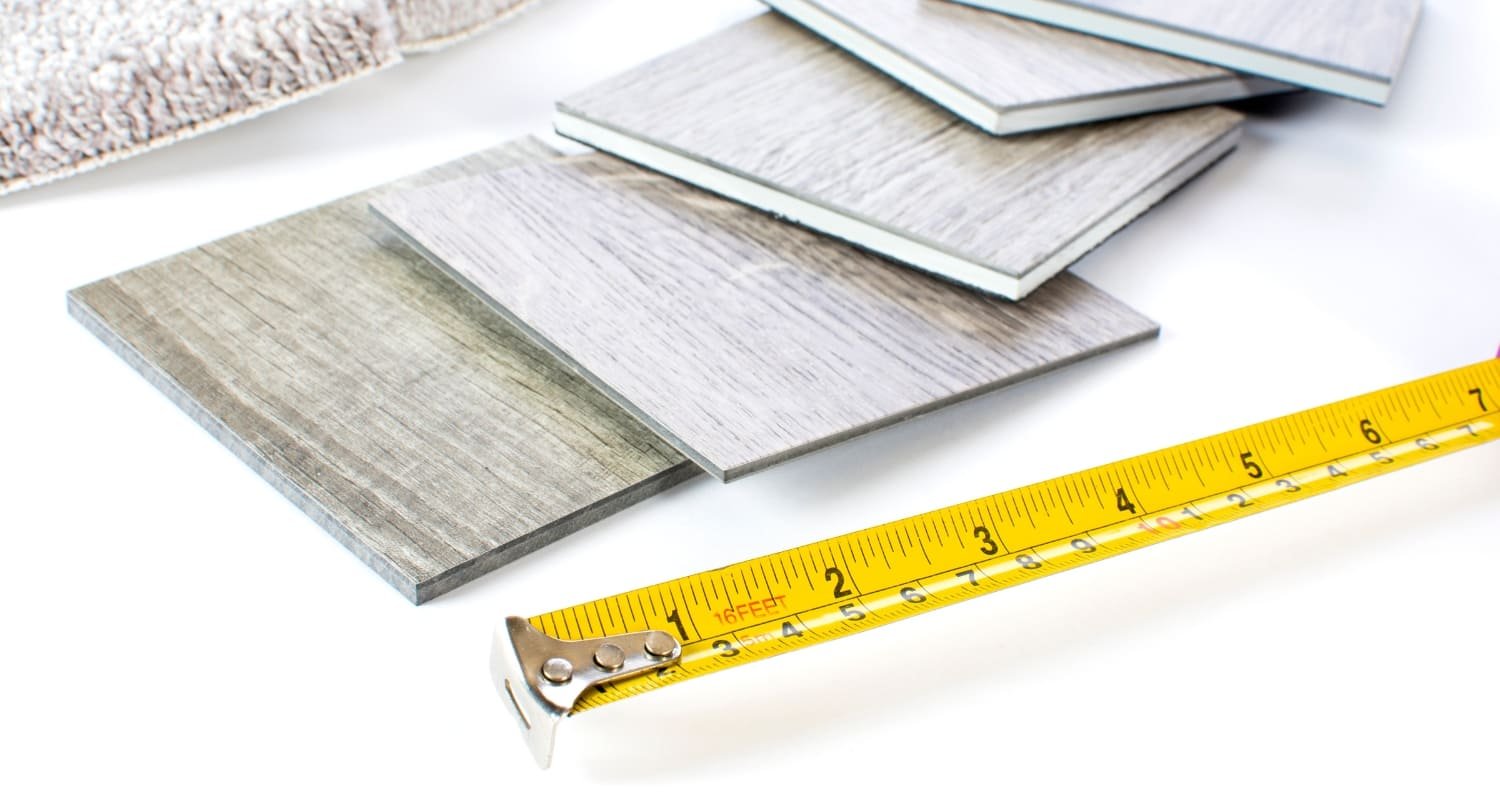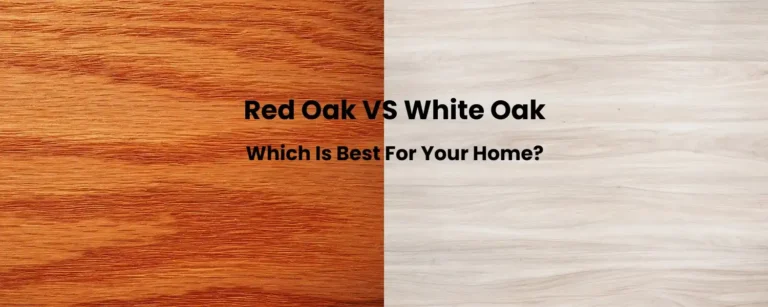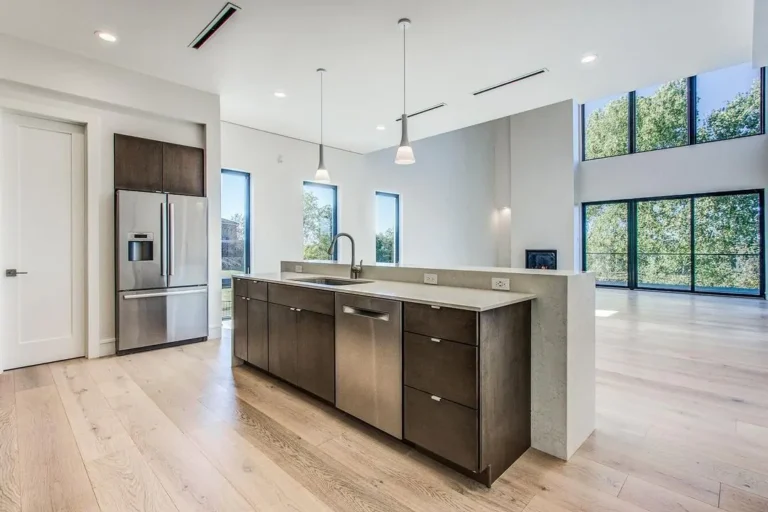How Thick is Engineered Hardwood? Everything You Need to Know
If you’re wondering how thick is prefinished engineered hardwood, you’ve come to the right place. Engineered hardwood is popular in residential floor installations for its durability and versatility, but understanding the ideal thickness is important for optimal performance. Choosing the right custom flooring for your home can be daunting, especially regarding engineered hardwood. One key factor in selecting the ideal option for your residential space is understanding how thick engineered hardwood should be and the various benefits of different plank thicknesses.
In this article, we’ll dig into everything you need to know about the thickness of engineered hardwood, helping you make an informed decision that aligns with your home’s needs and lifestyle.
Understanding Engineered Hardwood
What is Engineered Hardwood?
Engineered hardwood comprises multiple layers of wood veneer or plywood bonded together. Unlike traditional hardwood which is solid throughout, it features a top layer of real hardwood veneer attached to a core layer of plywood or HDF (High-Density Fiberboard). This construction enhances stability and durability, making it a popular choice for various uses.
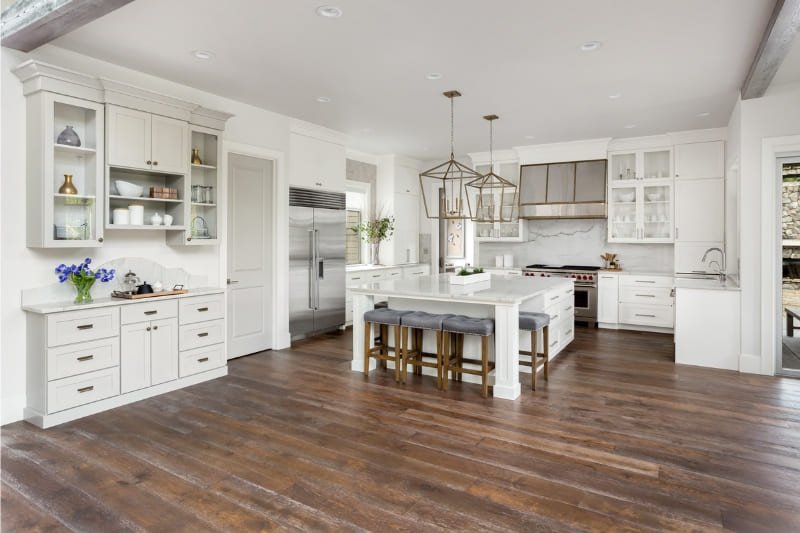
Compositions of Engineered Hardwood
Engineered hardwood typically consists of three main layers:
- Top layer (Wear Layer): This is the topmost layer of the flooring. It consists of real hardwood veneer, ranging in thickness from from 0.6 mm to 6.0 mm.
- Core Layer: Beneath the top layer lies the core layer, which provides stability and durability to the flooring. It is made of water-resistant plywood or HDF (high-density fiberboard), and its design helps resist expansion and contraction caused by changes in humidity and temperature.
- Bottom Layer: The bottom layer is made of hardwood or soft veneer, providing additional strength and stability to the flooring.
Read in detail in our other blog, “What is Engineered Hardwood?“
Things to Consider When Choosing Engineered Hardwood Thickness
When choosing the thickness of engineered hardwood flooring, it’s essential to consider various aspects in order to make an informed decision that aligns with your needs and preferences. To ensure you make a smart decision, take the following factors into account:
Underfloor Heating
Ensure the thickness of the engineered hardwood is compatible with the underfloor heating system. Thinner planks generally facilitate better heat transfer, enabling efficient heating system operation. However, thicker options provide increased stability and durability while having lower heat conductivity.
Expected Foot Traffic
Before deciding on the thickness of the flooring, consider the anticipated foot traffic. Thicker planks are better suited for heavy foot traffic as they provide greater cushion underfoot as well as improved durability and longevity than thinner alternatives. Consider the space’s demand to determine the ideal thickness for optimal performance.
Climate Consideration
Temperature and humidity fluctuations can affect the performance of even the most durable hardwood for homes. Thicker planks are more suitable for areas prone to environmental changes, reducing the risk of warping or buckling. Conversely, thinner options may be more appropriate for controlled indoor environments with stable climate conditions.
Durability and Stability
The thickness of engineered hardwood directly affects its durability and stability. Thicker planks contain multiple layers of wood veneers, providing increased strength and resistance to scratching, chipping, flaking, splintering and other wear and tear. This additional thickness also contributes to a stable flooring surface.
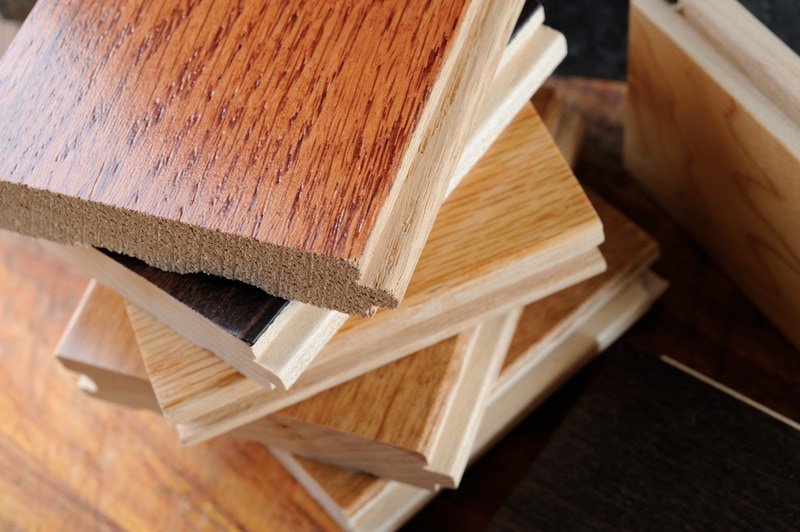
Wear Layer
The top wear layer, which is the top surface of engineered hardwood, is instrumental in providing durability and resistance against scratches and dents. Thicker wear layers offer enhanced scratch-resistant properties and we can refinish them multiple times, extending the flooring’s lifespan.
Under-Core
The under-core of engineered hardwood, which is located beneath the wear layer, contributes to the flooring’s overall stability and durability. Thicker planks typically feature a stronger under-core, enhancing structural integrity and minimizing the risk of warping or cupping. When selecting the thickness of engineered hardwood, it is important to evaluate the quality and composition of the under-core.
Cost
The cost of engineered hardwood increases with thickness due to the additional materials and manufacturing processes involved, resulting in higher price points for thicker planks. However, thicker planks offer better durability and longevity, making them a valuable investment relative to other seemingly more affordable hardwood flooring options for high-traffic areas or long-term projects.
Read our blog, “How Much Does Engineered Hardwood Flooring Cost?” to estimate the total cost of engineered hardwood for your home.
Installation Method
The thickness of engineered hardwood can influence the installation method. Thicker planks may require specific techniques or subfloor preparations, such as using an underlayment for floating installation or directly gluing them down. These techniques can significantly increase the overall cost.
Learn about various custom hardwood flooring installation methods in detail in our other blog, “Engineered Hardwood Flooring Installation Made Easy“
Common Thickness Options
When considering engineered hardwood flooring, it’s essential to understand the available commercial hardwood flooring thickness options. Common options include 3/8 inch, 1/2 inch and 5/8 inch, each with pros and cons. This section provides an overview of these options, enabling homeowners to make informed decisions based on their needs and preferences.
3/8 inch
Pros
- It provides a more affordable option compared to thicker alternatives.
- It is suitable for areas with low to moderate foot traffic.
- It is compatible with underfloor heating systems due to its thinner profile.
Cons
- It has less stability and durability compared to thicker options.
- Its resanding potential over the lifespan of the flooring is limited.
- It may offer less sound insulation than thicker alternatives.
1/2 inch
Pros
- It balances affordability with increased stability and durability compared to 3/8 inch options.
- It is suitable for moderate to high foot traffic areas.
- It offers better sound insulation than thinner alternatives.
Cons
- It has a slightly higher cost compared to 3/8 inch options.
- Its resanding potential is limited compared to thicker alternatives.
- It may require additional subfloor preparation compared to thinner options.
5/8 inch
Pros
- It provides enhanced stability and durability compared to thinner options.
- It suits high-traffic areas and environments prone to temperature and humidity fluctuations.
- It offers more resanding potential compared to other thinner options.
- It provides better sound insulation due to the increased thickness.
Cons
- It has a higher initial cost compared to thinner options.
- Its resanding potential is limited compared to solid hardwood flooring.
- It may require professional installation due to increased thickness and weight.
How to Choose the Ideal Thickness
Choosing the ideal thickness of engineered hardwood flooring is a crucial decision that can impact your space’s performance and aesthetics. This section explores key considerations and strategies that will assist you in making an informed choice.
Assessing lifestyle and usage patterns
Before selecting the thickness of engineered hardwood flooring, assessing your lifestyle and usage patterns within the space is crucial. Consider factors such as the level of foot traffic, presence of pets or children and frequency of use. Thicker options may suit areas with high foot traffic areas or active households. Thicker plank options better suit areas with high foot traffic, pet-friendly rooms and highly active households.
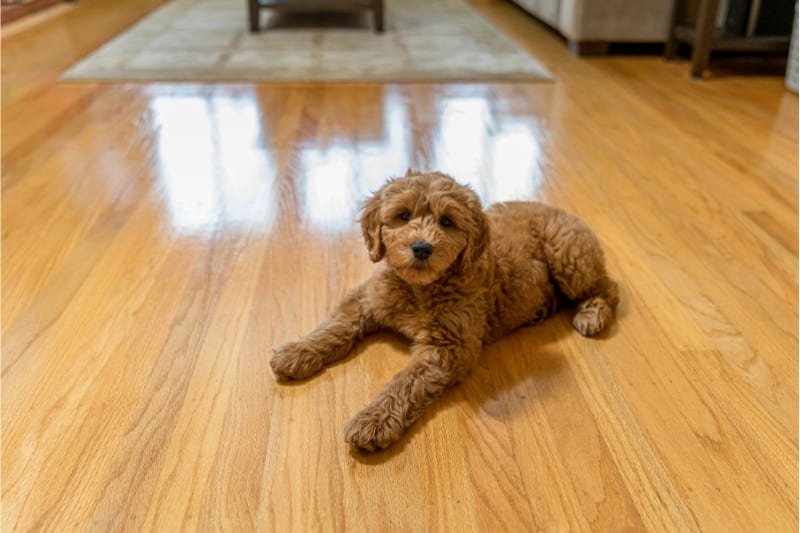
Consulting with Flooring Professionals and Retailers
Seeking guidance from flooring professionals, architects, interior designers and retailers can provide valuable insights into choosing engineered hardwood thickness. These experts can assess your needs, offer residential hardwood flooring recommendations based on their expertise, and provide information about different commercially available wood floor thickness options. Consulting a professional can help you make a well-informed decision that aligns perfectly with your requirements and preferences.
Elevate Your Home with Premium Flooring Solutions
Understanding the thickness options of engineered hardwood is crucial for making well-informed decisions regarding your flooring needs. Factors such as compatibility with underfloor heating, expected foot traffic, climate considerations, durability and installation methods are key in determining the ideal thickness. Whether you choose the affordability of 3/8 inch, the balance of cost and stability with 1/2 inch or the enhanced durability of 5/8 inch, assessing your lifestyle and consulting with flooring professionals are essential steps toward achieving a flooring solution that meets your specific requirements.
Villagio Wood Floors, a wholesaler based in California, offers retailers various engineered hardwood options to cater to their diverse needs. Our collection features carefully crafted thickness options that deliver exceptional quality and performance. With Villagio Wood Floors, you can access premium engineered hardwood products that blend durability, stability and aesthetic appeal. These products ensure customer satisfaction and long-term success in the flooring industry. Explore our collection today!
How Thick is Engineered Hardwood – FAQs
Is engineered hardwood thinner than hardwood?
Engineered hardwood is typically thinner than traditional solid hardwood. While a single piece of wood makes up solid hardwood, engineered hardwood consists of a layer of real wood on top of several layers of plywood or high-density fiberboard.
How long will engineered hardwood floors last?
The lifespan of engineered hardwood floors varies depending on factors such as thickness, quality, maintenance, and wear and tear. With proper care and maintenance, they can last for several decades.
Understand in detail through our comprehensive blog, “How Long Does Engineered Hardwood Last?“.
Is engineered hardwood thicker than laminate?
In general, engineered hardwood is thicker than laminate flooring. Engineered hardwood typically ranges from 3/8 to 5/8 inch thick, whereas laminate flooring is usually around 1/4 inch thick.
Learn the difference between these two flooring options in our comprehensive blog, “Which Is Better: Engineered Hardwood Vs. Laminate Flooring?“
Will thicker engineered hardwood flooring reduce noise and sound transmission in my home?
Thicker engineered hardwood flooring can reduce noise and sound transmission in your home compared to thinner options. The increased thickness enhances insulation against impact and noise, improving sound absorption properties.
Can I install thicker engineered hardwood flooring over a concrete subfloor?
Installing thicker engineered hardwood over a concrete subfloor is possible using proper installation methods. However, ensuring the subfloor is clean, level and properly prepared is important.
If you want to install engineered hardwood over a concrete subfloor, check out our other blog, “Installing Engineered Hardwood On Concrete“.
Is thicker engineered hardwood flooring more resistant to moisture damage?
Thicker engineered hardwood flooring offers better moisture damage resistance than thinner options. The additional thickness provides an extra layer of protection against moisture intrusion, reducing the risk of warping, cupping or buckling. However, proper installation and maintenance practices are essential for minimizing moisture-related issues.

